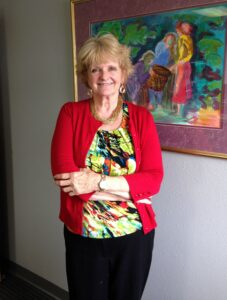
This article is addressed to seniors, those who interact with seniors, and those who will live long enough to become seniors themselves – in other words, all of us. It was inspired by a line in the new Matlock series with Kathy Bates that I will paraphrase: “Funny thing happens when people age. We can become darn near invisible.”
Hopefully, no one is invisible and everyone is valued. What are some specific needs we have as we age? How can we better interact with the seniors in our lives? Most of the needs of seniors are shared by people of any age. Just a few that will be briefly addressed with seniors in mind:
Family – Although relationships among family members can become complicated, our families share our memories, especially of members who are no longer with us. We need to have realistic expectations on what to expect from family. Family members need to recognize that aging members most likely have less physical energy. This can be especially hard on adult children. Often they cannot face the reality of their parent’s declining abilities. I have found this especially to be the case with those who no longer live nearby and do not see the challenges on a regular basis. This can often lead to tension between adult children who live near their parents and see changes and those who are not directly involved.
For all family members, it is important to try to mend family relationships as much as possible, asking for forgiveness when appropriate.
Friends -Friendships are important at any age but I find even more so as I age. Friends share many of the same “historical” memories and interests. They usually have more time to give to others and often a personal understanding of what others are going through.
Physical Connection – Besides emotional connections, physical connection is also important. Hugs and physical touch, when appropriate; looking directly at the person and really listening can show a person that they are valued. I have found this to be especially true when accompanying seniors to medical appointments. Doctors will very often address questions to the “younger” person, rather than to the senior. I have, on occasion, politely asked the doctor to address the patient. This was a pet peeve of my own father, who lived to 96, although he was very direct by saying directly to the doctor, “Don’t talk to her, talk to me”.
Pets can be increasingly important as we age. They offer companionship and affection. However, we need to be realistic about the pet’s needs and one’s ability to meet these. This is a fact sheet on seniors and pets offered by the Humane Society:
https://www.americanhumane.org/fact-sheet/pets-and-seniors/
Volunteer – For seniors who are able to do so, volunteering is a wonderful way to stay connected. There are many, many opportunities to do volunteer work. One suggestion is to consider being a hospice volunteer. This is a fact sheet offered by the National Hospice and Palliative Care Organization: https://www.nhpco.org/wp-content/uploads/Volunteer_FAQs.pdf
Two further suggestions are volunteering with Oasis (https://st- louis.oasisnet.org/volunteer/) and the Missouri Botanical Gardens (https://www.missouribotanicalgarden.org/).
Faith – If your faith is a valued part of your life, it is important to keep connections with those who share your faith. If you are part of a congregation, you can reach out to them to share your needs. Also, most congregations would love to have you volunteer with many of the “unpaid” needs they have.
Connection is a basic human need. It is important to keep expectations realistic. The approaching Holiday Season is a great opportunity to mend relationships, strengthen existing ones and perhaps reach out to new opportunities.
Picture Credit: www.freepik.com
